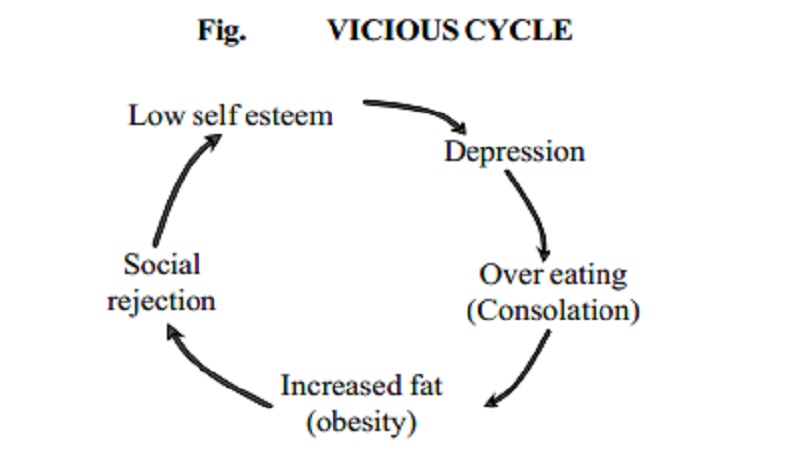Chapter: 11th 12th std standard Class Nursing Health Care Hospital Hygiene Higher secondary school College Notes
Factors that contribute to obesity

Obesity can be defined as the generalized accumulation of excess adipose
tissue in the body resulting in an increase of more than 20 percent of the
desirable weight. Obesity is due to positive energy balance where the intake of
calories (from the diet) is more than the expenditure of calories (physical
activity)
Factors that
contribute to obesity:
1.
Genetic factors: Genetic inheritance
influences 50-70 percent a person's
chance of becoming obese. If both parents are obese the chance in children is
80 percent and 70 percent if neither parent is obese.
2.
Age and sex: It can occur at any age and in either sex as
long as the person is in a positive
energy balance.
3.
Eating habits: Nibbling between meals
is a potential cause for obesity.
Excessive consumption of relatively cheap carbohydrate rich foods such as rice
and potato is another predisposing factor (rather than low calorie fruits and
vegetables). It is the total intake of calories rather than the frequency of
meals that causes obesity.
4. Physical activity: Obesity is more common after the age of 35 when physical activity decreases and food consumption either
remains the same or may increase with improved economic status.
5.
Endocrine factor: Dysfunction of the
thyroid and pituitary may result in
obesity.
Trauma: Obesity
may follow due to damage to hypothalamus
after head injury because it is not able to regulate appetite or satiety.
Related Topics